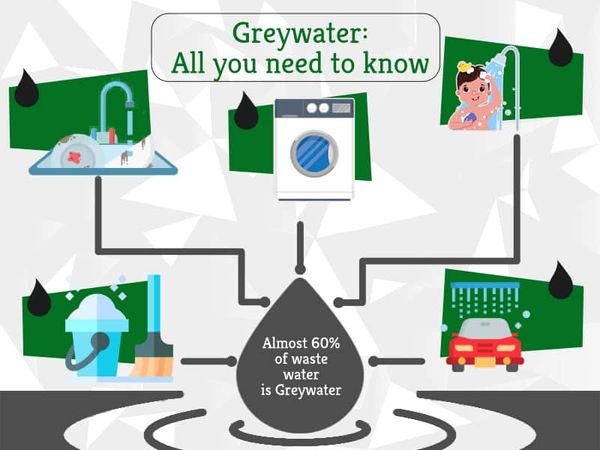2022-03-04
•

For optimal recycling of greywater, it is imperative that greywater be kept separated from blackwater by separate plumbing system. Greywater treatment is less expensive than blackwater treatment and if mixed, they need to be sent to sewage treatment plants. Most greywater is easier to treat than blackwater since it contains less pathogens. The psychological aversion to reuse of treated blackwater also necessitates the separation of greywater for water conservation efforts locally. Greywater from kitchen sinks contain grease and oil, and it needs to be removed before being sent to the greywater tank for treatment. You must have read of the fatbergs causing blockage to sewers due to fats in wastewater. Reuse within households require the fats to be removed, or if not possible the kitchen should be redirected to blackwater plumbing.

2021-06-28